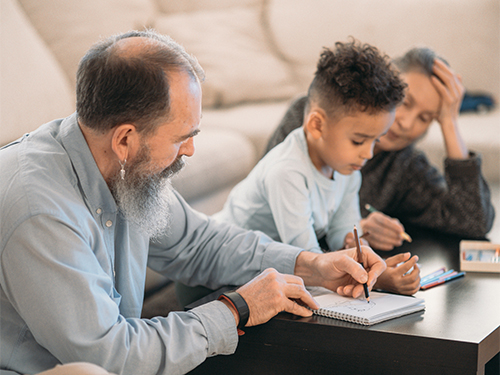(Posted 2022 December)
 Everyone needs money to live, right? When we put money aside and make deposits into a bank account, we’re saving. This builds up a balance of cash reserves to use during times of withdrawals. Think of your emotions like that bank account. The amount of funds in your emotional bank account reflects the amount of trust that's been built up in a relationship.
Everyone needs money to live, right? When we put money aside and make deposits into a bank account, we’re saving. This builds up a balance of cash reserves to use during times of withdrawals. Think of your emotions like that bank account. The amount of funds in your emotional bank account reflects the amount of trust that's been built up in a relationship.
Emotional Deposits Build Trust and Security
Every time we interact positively, treating another person with courtesy, dignity, kindness, compassion, honesty, and integrity, it makes a deposit into their emotional bank account. You build up a balance and they trust you more.
 You develop a feeling of security with another person by making constant predictable deposits in each other’s emotional bank accounts. If you make mistakes that can hurt the other person, like losing your temper, those occasional withdrawals from the account are offset by the positive balance.
You develop a feeling of security with another person by making constant predictable deposits in each other’s emotional bank accounts. If you make mistakes that can hurt the other person, like losing your temper, those occasional withdrawals from the account are offset by the positive balance.
When the trust level in the account is high, communication is easier and more effective. Your communication may not always be clear, but that person will generally assume you mean well. When a relationship is full of deposits it is easier to do for others or have others do for us.
Emotional Withdrawals Break Trust
 The opposite is true if you have a habit of showing rudeness, disrespect, interrupting, overreacting, ignoring, lying, and threatening. Overwhelmingly displaying these negative behaviors will eventually lead to overdrawing an emotional bank account. The trust level gets very low.
The opposite is true if you have a habit of showing rudeness, disrespect, interrupting, overreacting, ignoring, lying, and threatening. Overwhelmingly displaying these negative behaviors will eventually lead to overdrawing an emotional bank account. The trust level gets very low.
You have to be very careful of everything you say. There‘s a lot of tension in the relationship or some might say that you have to walk on eggshells around the other person.
When the emotional bank account is in the negative because of spending all the goodwill, it’s harder to care for others or rely on them to do something for us. Just think about how you would feel if your child forgot to take out the trash for the third time in a row. If your trust account is low, then you would likely feel less forgiving of their actions.
Experiences Impact Our Relationship Expectations
 Everyone has things that make them feel positive, safe, close, or connected to another person. If we know a person’s love language we can more effectively make deposits with that person. Also, there are things that annoy us, hurt our feelings or make us feel distant or disconnected from another person. As a result, we have a different emotional bank account for each significant relationship in our life.
Everyone has things that make them feel positive, safe, close, or connected to another person. If we know a person’s love language we can more effectively make deposits with that person. Also, there are things that annoy us, hurt our feelings or make us feel distant or disconnected from another person. As a result, we have a different emotional bank account for each significant relationship in our life.
However, relationship deposits take time and consistency. A strong history of healthy relationships may create hope and trust in all relationships. While a strong history of unhealthy relationships may create distrust and fear in all relationships. We must be committed to caring and showing acts of compassion to create healthy relationships and break cycles of unhealthy relationships.
Practice Putting These Principles into Action
 Talk with your child and explain the concept of emotional bank account deposits and withdrawals. Ask the child to share examples of deposits and withdrawals in your relationship. You might be surprised at what matters to your child!
Talk with your child and explain the concept of emotional bank account deposits and withdrawals. Ask the child to share examples of deposits and withdrawals in your relationship. You might be surprised at what matters to your child!
Together, you can write down things that each of you do that deposit and withdraw from each other’s relationship emotional bank account. Deposits and withdrawals are different for each person. Having this conversation with your child can be very empowering for them, and lead to more transparency and greater understanding and fulfillment for both of you.
The Parenting Education Programs is enrolling participants for upcoming classes. Join us for more information about positive and effective ways parents can interact with their children at every age and stage of development. We would love to hear from you. If you have questions or feedback about the topic in this article, send an email to us.
Based on materials in the NFI-19™ - Facilitator Manual. Copyright 2021© by Sonya M. Thorn MSOL, LCSW. Distributed under license by Praxis with Integrity Consulting PLLC.
This posting is part of the Department of Family Services' Community Corner where you’ll find timely information about upcoming events, parenting and wellness tips, programs and services, and more! Share these helpful posts with your friends and family. Don't miss out on future postings! Sign up today!

